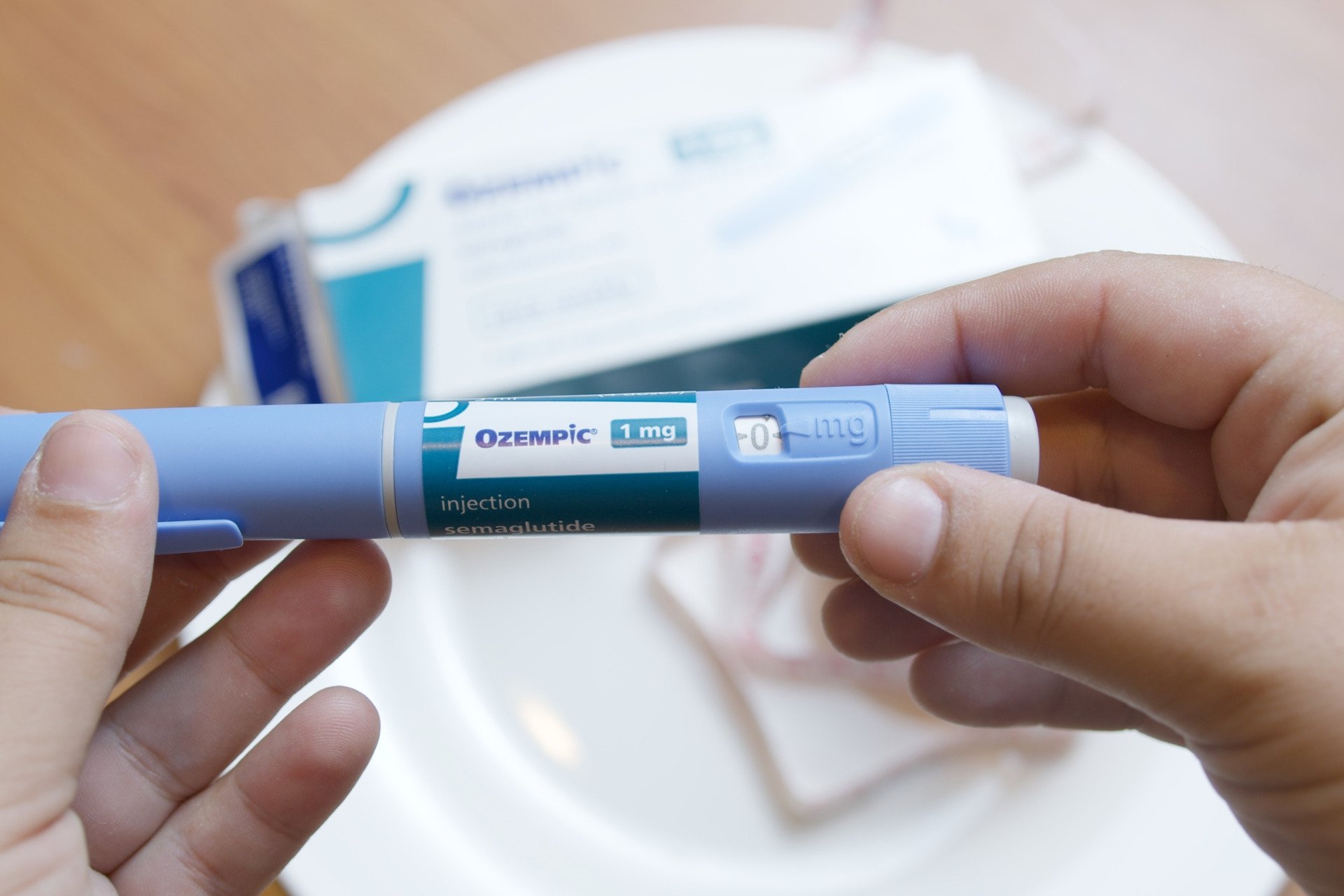Science
Study Reveals Ozempic’s Limited Effectiveness for Emotional Eaters

A recent study indicates that the effectiveness of GLP-1 receptor agonists, including Ozempic and Wegovy, may be significantly diminished for individuals who overeat due to emotional triggers. Researchers from Kyoto University conducted an observational study involving 92 participants with type 2 diabetes in Japan. Their findings, published in the journal Frontiers in Clinical Diabetes and Healthcare, highlight the varying responses to these medications based on the underlying reasons for overeating.
The study explored how different eating behaviors influenced the success of GLP-1 drugs. Participants were monitored throughout their first year of treatment, and the results suggest that those who overeat primarily due to external stimuli—such as the appearance or aroma of food—show greater long-term benefits from these medications than those whose overeating is driven by emotional factors.
Daisuke Yabe, the senior author and a professor of diabetes, endocrinology, and nutrition at Kyoto University, stated, “Pre-treatment assessment of eating behavior patterns may help predict who will benefit most from GLP-1 receptor agonist therapy.” He added that while these medications are effective for individuals who gain weight due to external cues, they may not work as well for those whose overeating stems from emotional issues.
To assess the participants’ progress, the researchers collected data on body weight, composition, dietary habits, and metabolic indicators including blood glucose and cholesterol levels at three intervals: the start of treatment, three months in, and one year after beginning therapy. They specifically focused on emotional eating, external eating, and restrained eating, noting that excessive restrained eating could lead to disordered eating behaviors.
Over the course of the year, participants experienced statistically significant reductions in body weight, cholesterol levels, and body fat percentage without affecting skeletal muscle mass. Although blood glucose levels improved, the changes were not statistically significant. Interestingly, while participants initially reported increased restrained eating and decreased emotional and external eating by the three-month mark, they reverted to their original eating patterns by the end of the year.
Takehiro Kato, co-author of the study and a researcher at Gifu University, commented, “One possible explanation is that emotional eating is more strongly influenced by psychological factors which may not be directly addressed by GLP-1 receptor agonist therapy.” He emphasized that individuals with significant emotional eating tendencies might require additional behavioral or psychological support to see improved outcomes.
Throughout the year, participants reported a decrease in external eating. Those who began the study with high levels of external eating saw the most significant improvements in both weight loss and blood glucose levels. However, the research did not establish a correlation between initial emotional or restrained eating behaviors and the benefits gained from the medication after 12 months.
Yabe warned that while the study suggests a potential link between external eating behavior and treatment response, these findings are preliminary. The study’s observational nature and reliance on self-reported data mean that more rigorous research is needed to establish causation. “Further evidence is necessary before they can be implemented in clinical practice. Should future large-scale or randomized controlled trials validate this relationship, incorporating simple behavioral assessments could become a valuable component in optimizing treatment strategies,” Yabe concluded.
This study underscores the complexity of treating obesity and diabetes, revealing that strategies may need to be tailored to individual psychological and behavioral profiles for optimal effectiveness.
-

 Technology5 months ago
Technology5 months agoDiscover the Top 10 Calorie Counting Apps of 2025
-

 Technology2 weeks ago
Technology2 weeks agoOpenAI to Implement Age Verification for ChatGPT by December 2025
-

 Health3 months ago
Health3 months agoBella Hadid Shares Health Update After Treatment for Lyme Disease
-

 Health3 months ago
Health3 months agoAnalysts Project Stronger Growth for Apple’s iPhone 17 Lineup
-

 Health3 months ago
Health3 months agoErin Bates Shares Recovery Update Following Sepsis Complications
-

 Technology5 months ago
Technology5 months agoDiscover How to Reverse Image Search Using ChatGPT Effortlessly
-

 Technology3 months ago
Technology3 months agoElectric Moto Influencer Surronster Arrested in Tijuana
-

 Technology2 months ago
Technology2 months agoDiscover 2025’s Top GPUs for Exceptional 4K Gaming Performance
-

 Technology5 months ago
Technology5 months agoMeta Initiates $60B AI Data Center Expansion, Starting in Ohio
-

 Technology5 months ago
Technology5 months agoRecovering a Suspended TikTok Account: A Step-by-Step Guide
-

 Health5 months ago
Health5 months agoTested: Rab Firewall Mountain Jacket Survives Harsh Conditions
-

 Lifestyle5 months ago
Lifestyle5 months agoBelton Family Reunites After Daughter Survives Hill Country Floods





















